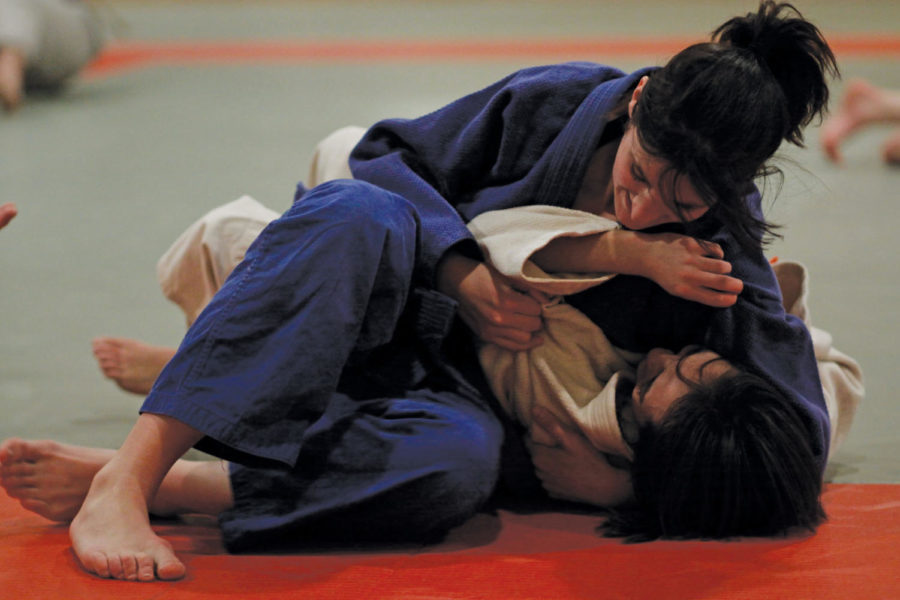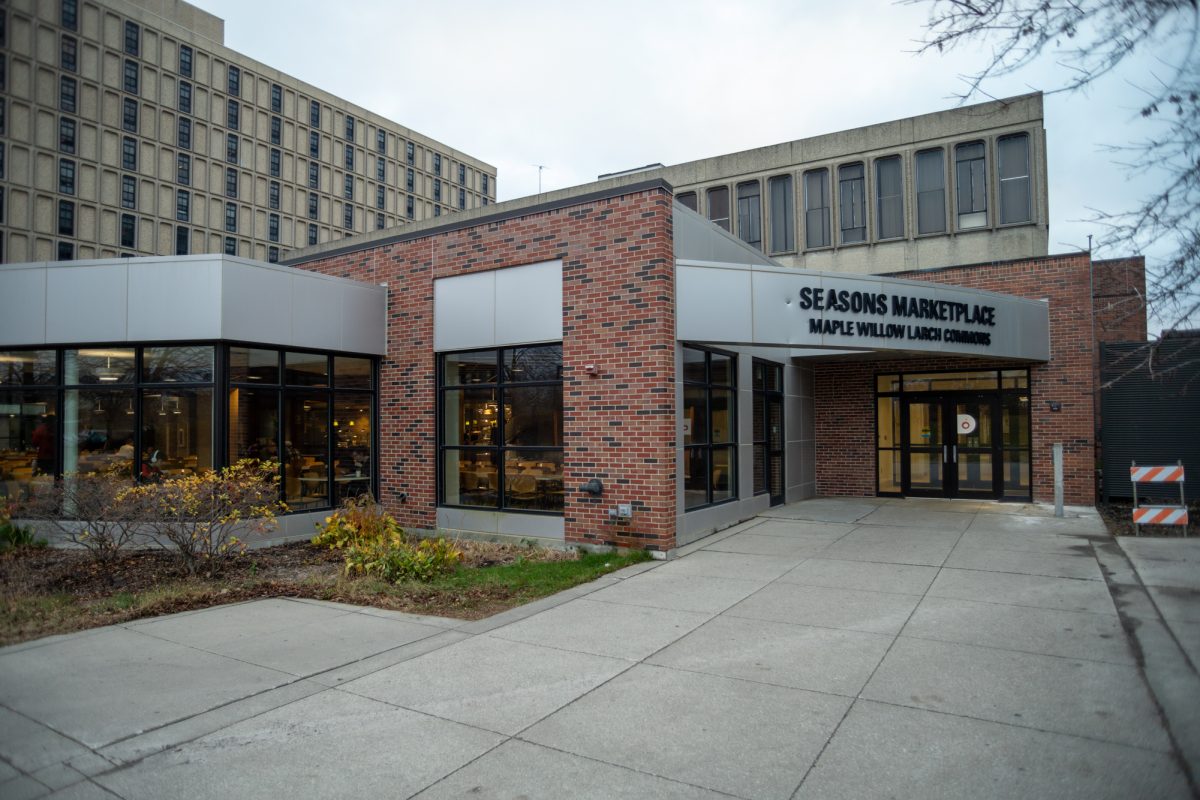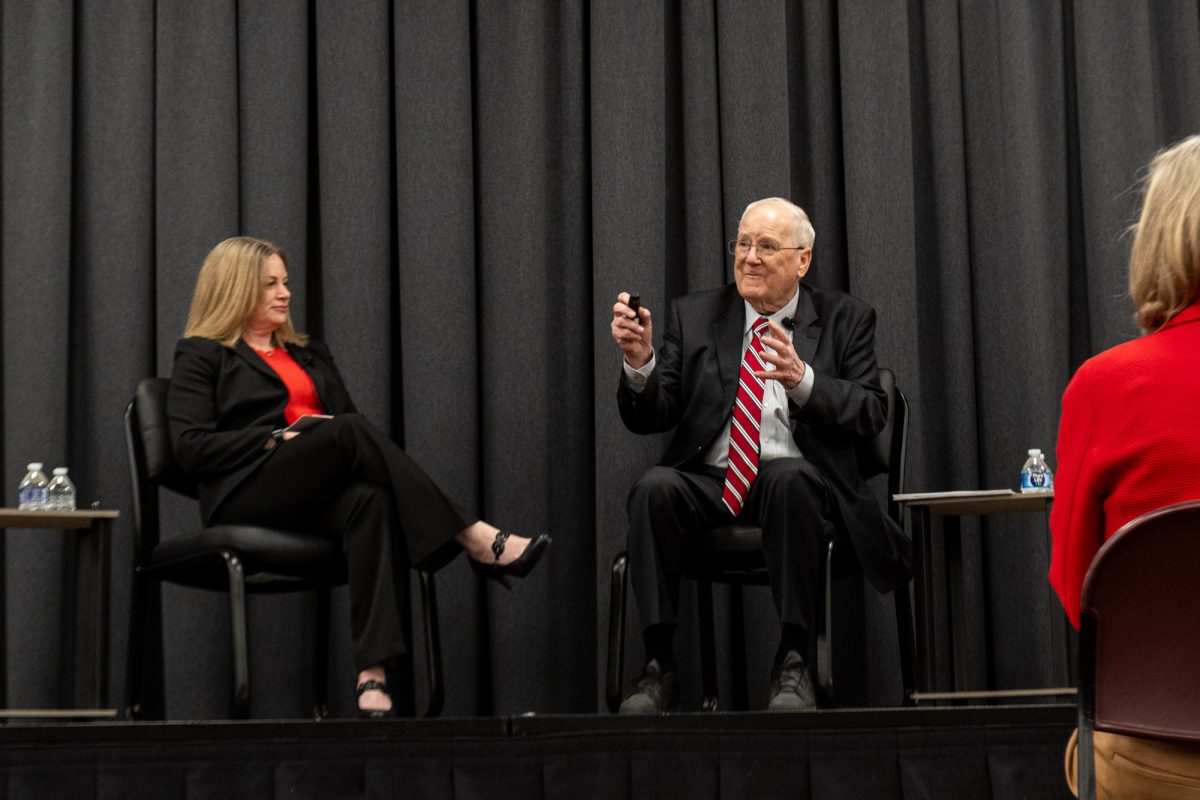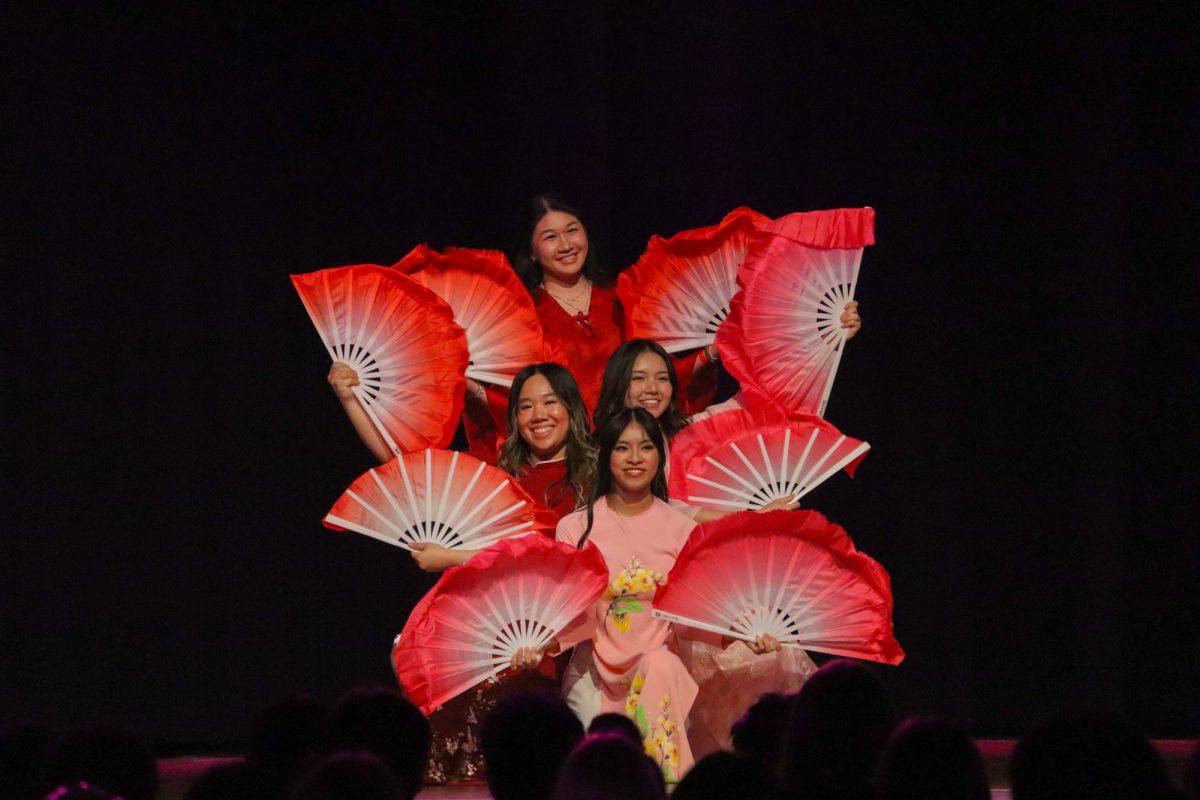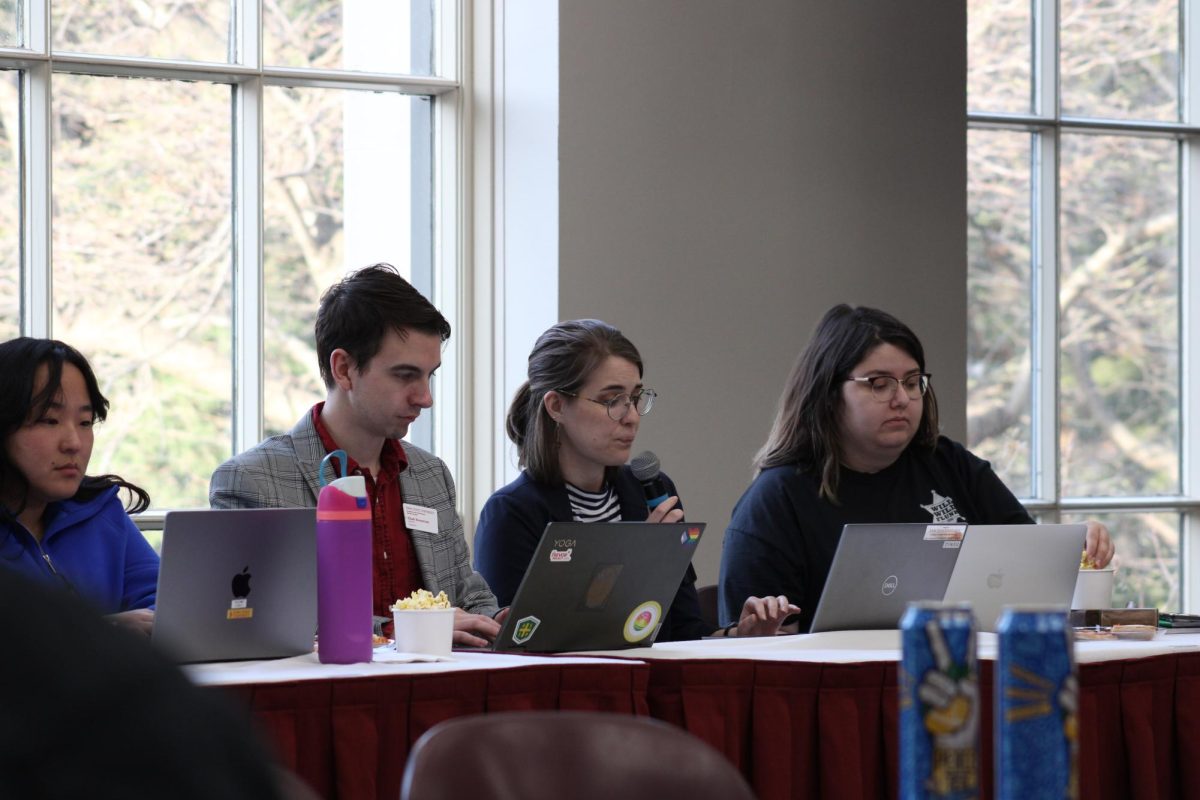Hip tossing into success
Photo: Kelsey Kremer/Iowa State Daily
Priscila Torres, senior in aerospace engineering and Hillary Horst, senior in dairy science practice Judo on Tuesday, Dec. 7 in Forker. The Judo club meets Tuesday from 5:30-7 for practices.
December 7, 2010
Iowa State’s Judo Club is one that many people are likely unfamiliar with, but a day at a practice brings the martial arts club into a whole new light.
Judo is a Japanese form of martial arts that dates back to the 1800s, and while it is similar in some ways to mixed martial arts or wrestling, it also has some distinct differences.
“In competition judo, there is no punching or kicking; it’s a grappling martial art, so it’s more similar to something like wrestling or jujitsu,” said senior and judo practitioner Adam Bohl. “You win by throwing an opponent from his feet onto his back and the other ways to win are by choke, an arm lock and by pin, and unlike wrestling a pin has to be held for 25 seconds before the match is called.”
Bohl has been doing judo since he was 16 and is in his fourth year as a member of the Judo Club.
“I did it from a place called Des Moines Judo Academy, which is located in Altoona now, so it was private instruction, but it was while I was in high school,” Bohl said.
Yong Chin Pak has been the grandmaster of the club since 1973, and the path that led him to Iowa State is quite the story.
“A long time ago in Korea, there was a Korean war between North and South and that was my childhood. We didn’t have food, we were cold and starving, and it wasn’t only my family but the whole entire country,” Pak said.
“So basically we didn’t have any kind of food and no money and we needed to pay school tuition, so I heard about it and judo has scholarships, so that’s why I began to start.”
Pak suffered from poor health as a child because of the food shortages and used judo to get better. After attending Korean Judo College, he moved to the United States and started teaching judo at the College of Saint Mary in Omaha, Neb., and then Iowa State, where he not only teaches judo but life-long values as well.
“It’s starts with Grandmaster Pak,” said club vice president Kedge Zawack. “He teaches judo here in the class, but those 10 things that are written over on the wall are why he continues to teach and he wants to instill those values. Generally after every class, he gives a little talk about why those things are important and why we need to embody them, and I think those aspects of respect and integrity really come through with the people, and we’re proud to represent those.”
The club has competed in various tournaments around the Midwest this year, traveling from Minnesota to Wisconsin to Colorado and will be competing in the Collegiate Nationals in West Point, N.Y., in March.
The club has between 60 and 80 active members at any given time, but only a small handful travel to each tournament.
“To the average tournament we’ll bring somewhere between five or 10, generally around seven,” Zawack said. “It sort of varies because people have their school to take care of first off and then it depends on how far we’re traveling.”
For those who want to try something new and give the sport a try, or who just want to get a good workout, Pak has the answer.
“Just come. In January right after school starts, the first Thursday, judo starts at 5:30 [p.m.], and look up the e-mail and we have an e-mail that goes through all the university,” Pak said. “It’s simple to start, just come and try it out.”
Pak also said to come in shorts and a T-shirt the first time, and after a few practices you will get the uniform, called a judogi.
It’s recommended to start at the beginning of the semester, but Zawack says some members of the club began once the semester got going and it wasn’t a problem.
“Beginning is better because at the beginning of the class it’s geared toward beginner,” Zawack said. “As the semester moves on, we assume that everybody is advancing at the same level, so if you start at mid-semester then you have to play catch up, which can be done.”
Practices for the Iowa State Judo Club are Tuesday and Thursday nights in the Forker Gym.


